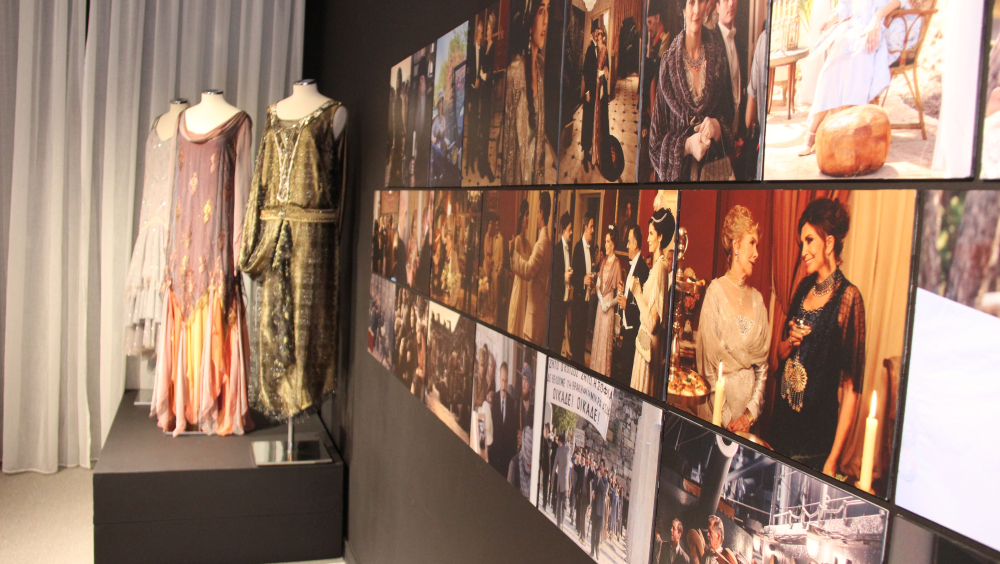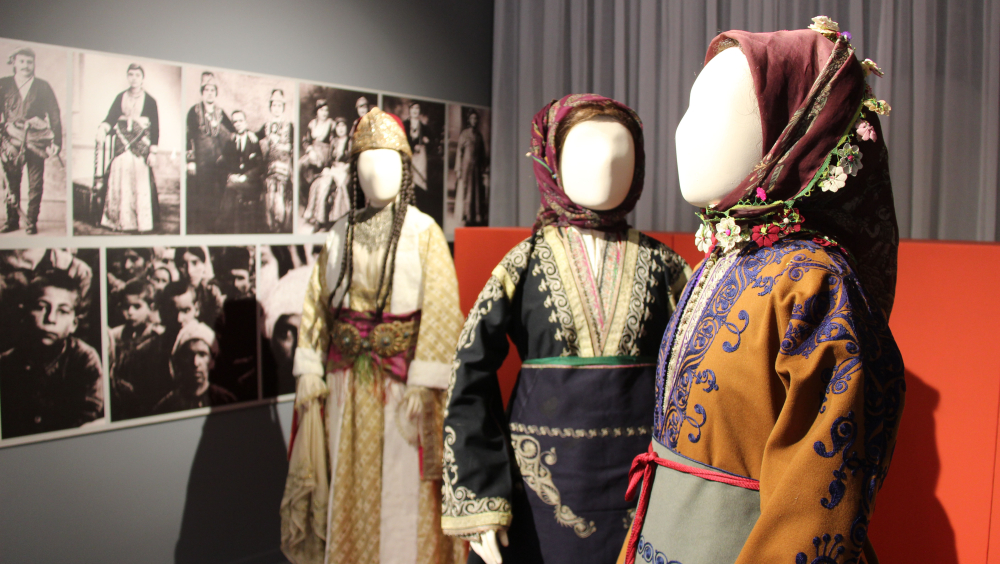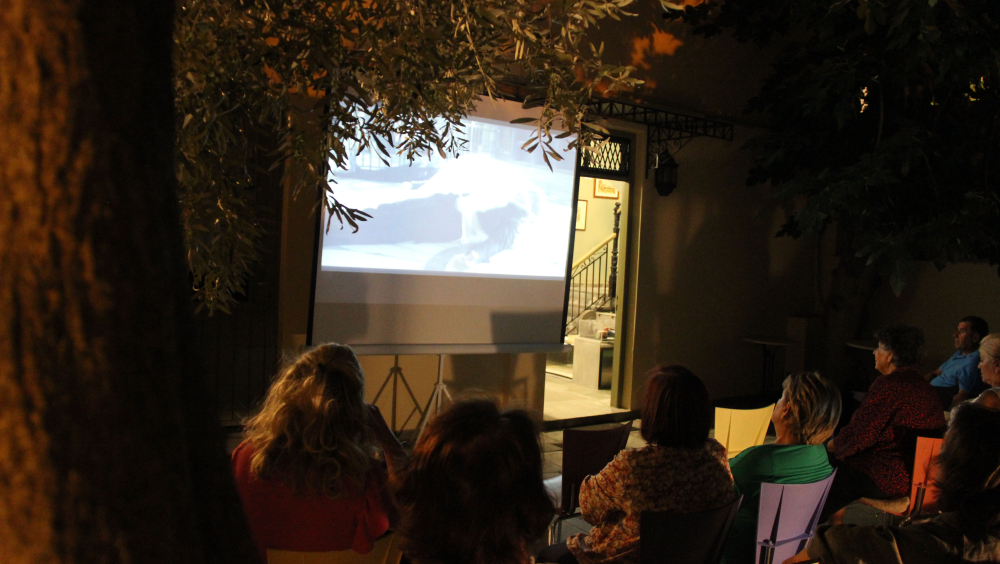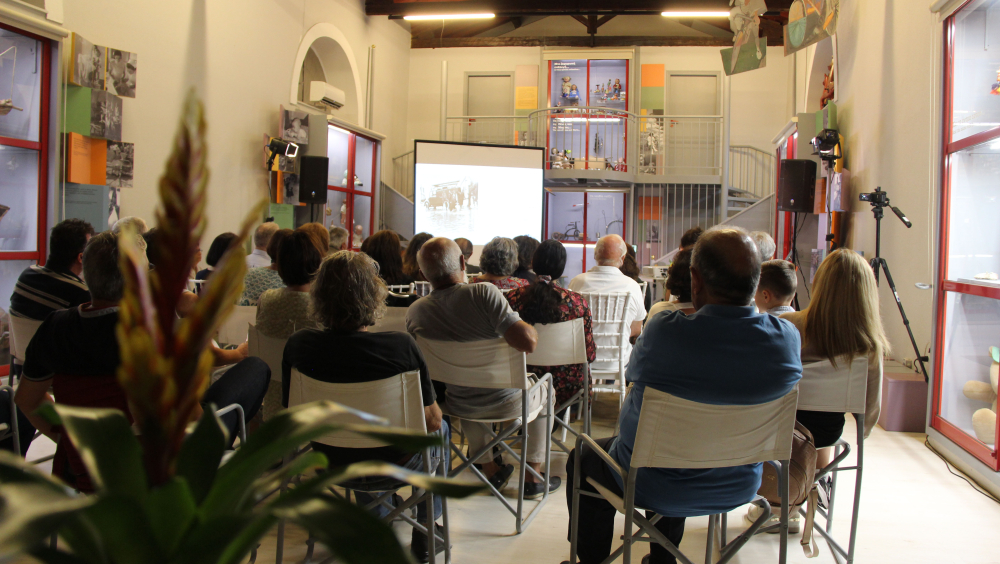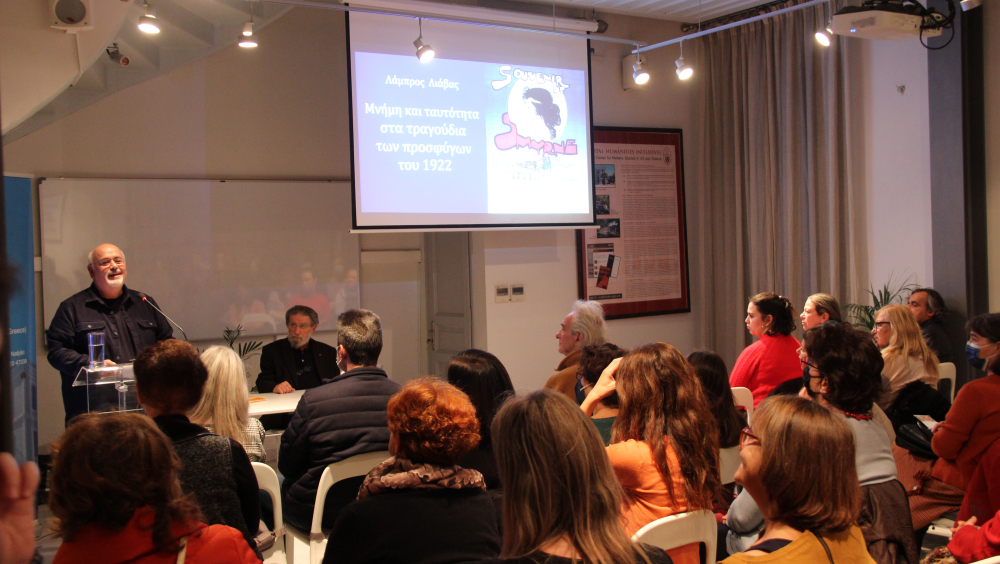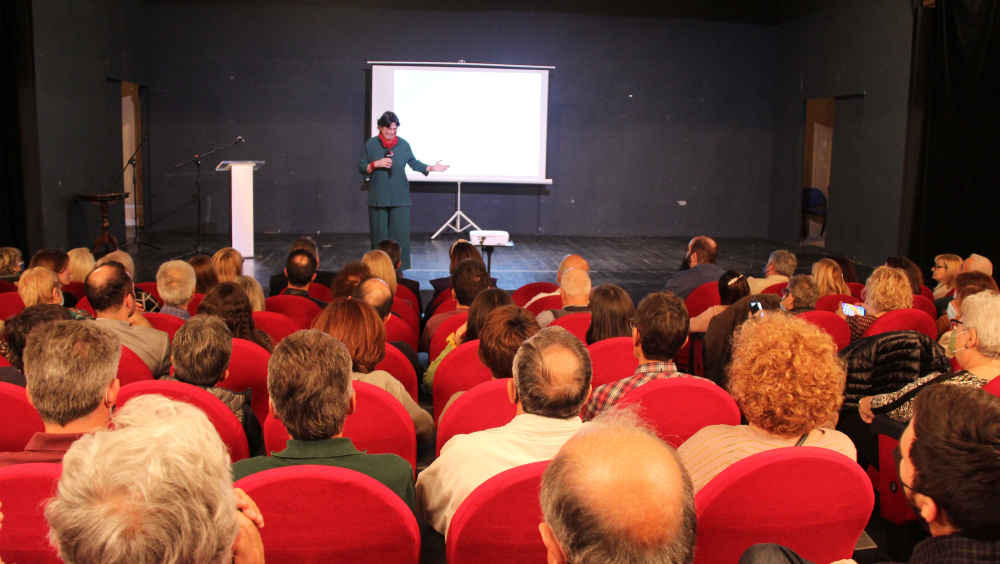Basil Papantoniou Foundation Commemorative Events for the 100-year anniversary of the Asia Minor Disaster
In September 2022, to mark the 100-year anniversary of the Asia Minor Disaster, the Basil Papantoniou Foundation designed a series of actions centred on Asia Minor refugees. The mass influx of refugees from Asia Minor to Greece that followed the Asia Minor Disaster signalled a period of major upheaval in Greece. The critical issues to be addressed were, initially, refugee reception and settlement infrastructures, followed by national health and employment. Through our actions, the BPF strove to demonstrate the impact of these events on a cultural level, since Greek refugees, originating from areas with a centuries-long cultural tradition, transferred their entire culture to their new homeland:their music, literature, dance, diet, dress and social customs. Greek tradition was enriched as it assimilated these new features, which, together with the existing, created a new cultural identity. To realise this important project, the BPF collaborated with the Municipality of Nafplion and local cultural organisations, in the interest of encouraging the direct engagement and participation of the local community.We selected Nafplion primarily because of its history as the first capital city of the independent Greek nation. Nafplion and the surrounding regionwere settled by refugees from Asia Minor, who established their own communities. In fact, one such settlement,NeaKios, features a folklore museum with objects belonging to the refugees, which Ioanna Papantoniou and Virginia Matseli were instrumental in founding.
Information on the BPF The Basil Papantoniou Foundation (BPF) – formerly the “B. Papantoniou” Peloponnesian Folklore Foundation (PPF) – is a legal entity of private law, based in Nafplion. It was founded in 1974 by Ioanna Papantoniou in memory of her father, Basil. The Foundation’s scope is to research, document, preserve and disseminate modern Greek and global culture, in all of its forms and manifestations. It is housed in the home of Basil Papantoniou, which was converted into a museum in 1981. In that same year, the BPF received the European Museum of the Year Award (EMYA) for its exhibition “Production, processing and application of natural weaving materials in Greece”, which served as the starting point for museological reflexion for all small and several major museums in Greece, as well as for its contribution to the study of modern Greek culture, the size and quality of its collections, its educational and innovative – in aesthetic terms – exhibition layout, and the originality of its educational programmes. In 2013, the Foundation was honoured by the Academy of Athens for its contribution to Greek culture. Its research activity, over the 1970s and 1980s, includes studiesall across Greece and abroad, aimed at recording and studying folk culture, music and dance, preindustrial technology and children’s toys. Notable was the ethnomusicological research undertaken by the Foundation’s associates Alekos Ioakovidis and Foivos Anogeianakis in villages of Cyprus, which lead to the publication entitled “Cyprus, Demotic Music”. The findings of these studies became the core of the Foundation’s publishing activity, particularly the scientific annual “Ethnografika”, which now numbers 15 volumes, and the more recent series “Endymatologika”, with 5 volumes published to date. Among the BPF’s foremost and long-running aims, by initiative of and with financial support from Ioanna Papantoniou, are further education and the endowment of scholarships. From 1981 to 2003, associates of the BPF have pursued further education abroad, in areas such as ethnomusicology, the anthropology of dance, textile preservation, library science, social anthropology, and ethnology. In October 1989,following research in childhood museums in Europe conducted by Virginia Matseli, the BPF inaugurated the first Childhood Museum in Greece, named “Stathmos”,at the old railway station of Nafplion. The facilities, which include the buildingof the old rail depot and its platform, were provided to the Foundation by the Municipality of Nafplion. “Stathmos” hosts exhibitions and educational programmes. The BPF also took part in the experimental educational programme “MELINA – Education and Culture”, which was implemented in eight schools across Greece. In 1989, the Minister of Culture Melina Merkouri assigned the National Dress Archive to the BPF. In 2003, Ioanna Papantoniou founded the Hellenic Costume Society, as an extension of the Archive, with a view of establishing a Museum of Dress Culture in Greece. The BPF’s collections now amount to some 50,000 artefacts, covering all study areas of modern Greek culture. The Foundation’s library holds approximately 12,000 books and 250 journals, in areas such as museology/ethnology, folklore, costume design, sociology, history, arts and crafts, theatre, music, children’s books, etc. The Foundation’s archives include rare material, mostly derived from on-site research, on dress, dance, song, etc. Actions (History) In September 2022, to mark the 100-year anniversary of the Asia Minor Disaster, the Basil Papantoniou Foundation designed a series of actions centred on Asia Minor refugees. The mass influx of refugees from Asia Minor to Greece that followed the Asia Minor Disaster signalled a period of major upheaval in Greece. The critical issues to be addressed were, initially, refugee reception and settlement infrastructures, followed by national health and employment. Through our actions, the BPF strove to demonstrate the impact of these events on a cultural level, since Greek refugees, originating from areas with a centuries-long cultural tradition, transferred their entire culture to their new homeland:their music, literature, dance, diet, dress and social customs. Greek tradition was enriched as it assimilated these new features, which, together with the existing, created a new cultural identity. To realise this important project, the BPF collaborated with the Municipality of Nafplion and local cultural organisations, in the interest of encouraging the direct engagement and participation of the local community.We selected Nafplion primarily because of its history as the first capital city of the independent Greek nation. Nafplion and the surrounding regionwere settled by refugees from Asia Minor, who established their own communities. In fact, one such settlement,NeaKios, features a folklore museum with objects belonging to the refugees, which Ioanna Papantoniou and Virginia Matseli were instrumental in founding. The BPF’s actions began with an exhibition of costumes from the film “Smyrna”,created by the internationally acclaimed costume designerFoteiniDimou. Her worksare representative examples of the garments worn by all social classes of multicultural Smyrna over the 1916-1923 period. The revival of an era, with the use of contemporary media such as film, illustrates the residents’ position and living standard before their displacement. This was followed by an exhibition entitled “Dress Codes: The garments of Asia Minor refugees from the Collections of the Basil Papantoniou Foundation”. The exhibition’s focus was on garments, which comprise, besides, a large part of the Museum’s documented collection. Alongside the exhibition, on a weekly basis and over a period of three months, the Foundation ran a series of complementary events to approach the subject from all angles. In addition to the screening of a relevant film held in the museum’s garden, the local community had the opportunity to enjoy readings and discussions of literary texts, studies, and accounts from refugees who had settled in the area. The events also included presentations of the historical events and the music, traditions, dances and customs of the refugees, and several discussions on how these evolved over time, as well as an academic conference on the topic “Asia Minor: History – Culture”. It is worth remarking that several individuals who pursued further studies through the BPF, under the guidance of its founder, Ioanna Papantoniou, took part in these events (lectures, presentations) as fully-fledged academics, passing on their knowledge and experience. This is illustrative of the Foundation’s role in enriching the domestic scientific community in its areas of interest. Today, the BPF’s Cultural venue “Sofroni 13” hosts an exhibition entitled“Greek advertisements and packaging, 1900-1970. Christos Kostouros Collection”. Included through their advertisements are businesses that assimilated the refugees from Asia Minor, securing them dignified employment and housing and a decent standard of living. The events were hosted at various sites in the town of Nafplion, such as the garden of the Basil Papantoniou Foundation Museum, the “Sofroni 13” Cultural Centre, the Harvard University Center for Hellenic Studies in Nafplion, the “Stathmos” Childhood Museum, and the Municipality’s “Trianon” cultural venues. All the events were well attended by the public, and there was no shortage of highly emotional moments, arising in response to oral refugee accounts, when members of the audience took to the stage to share their own stories, as well as during the presentation of the Folklore Museum that they painstakingly created in the new settlement of Kios. This is the place to which the refugees entrusted their precious belongings, as evidence and witnesses of their journey and settling, as well as bearers of memories, a legacy for the generations that follow.
European cities are characterised by cultural and ethnic diversity. Acceptance and respect for our fellow human as regards their customs and their culture are important values for social integration and the dignified living and coexistence of different peoples. Keeping the past alive through museums, archives and oral accounts is of importance, as it may facilitate, by means of actions and the engagement of local communities, the inclusion of refugee groups, and enhance the sustainability of cultural traditions. Staying abreast of cultural changes and undertaking initiatives that bridge cultural differences are also favourable to that end. Understanding and mutual respect are the first steps towards a more conscious and open society, where compliance with the laws of the respective reception countries is a given. Through its commemorative events for the 100-year anniversary of the Asia Minor Disaster, the BPF used a historical event, the response to it and the influence it exerted upon Greek cultural tradition, to bring to the fore both the refugee issue itself, and the way it has contributed to the country’s cultural development.
